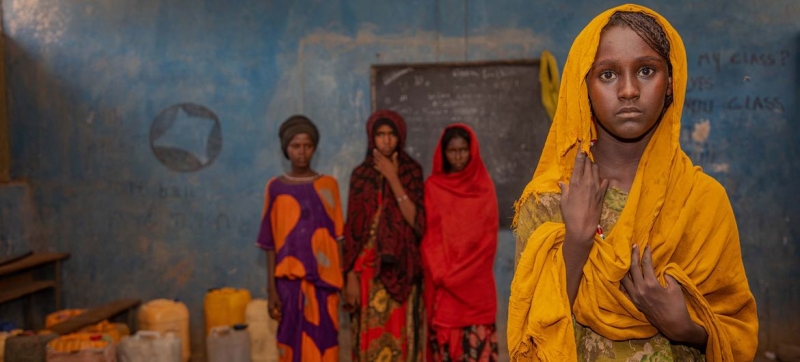
The crisis in Ethiopia has worsened due to droughts, floods and conflicts. 15.5 million people in the country need help. In the photo: students from one of the schools in Ethiopia. Geneva conference: Donors pledge $630 million to aid Ethiopia Humanitarian assistance
Ethiopia’s international partners gathered in Geneva on Tuesday to discuss increasing humanitarian funding for the crisis-hit country. Following the meeting, donors pledged a total of almost $630 million, but this is far less than needed.
The crisis in Ethiopia has worsened due to droughts, floods and conflicts. 15.5 million people in the country need help. The UN, together with the governments of Ethiopia and the UK, organized a fundraising conference to help fund vital humanitarian efforts. The UN-backed $3.24 billion 2024 humanitarian response plan is only five percent funded.
“Thousands of schools, health facilities, water supplies and other public infrastructure have been destroyed as a result of the conflicts. And this complicates the situation even more,” said Ramiz Alakbarov, UN Resident Coordinator in Ethiopia. The safety of aid workers, he said, remains a problem in many parts of the country.
Read also:
INTERVIEW | UN in Ethiopia: From Emergency to Development Support
The Ethiopian government recently approved a new national disaster risk management policy and committed $250 million for food support in the coming months. In addition, the country’s regional governments and private sector have committed additional domestic resources to respond to emergencies.
UN Assistant Secretary-General for Humanitarian Affairs Joyce Msuya welcomed the solidarity shown by conference participants. “When people join forces, as we have done today, they can accomplish complex tasks and overcome great challenges,” she said.
Speaking on behalf of the World Health Organization (WHO), Dr. Mike Ryan reported that the cholera outbreak in Ethiopia is now in its 20th month, with more than 41,000 cases people, and the number of malaria cases per year exceeded 1.1 million. “WHO and our health partners are on the ground providing life-saving health services,” he said. “This year we only received four percent of the $187 million needed to continue operations,” Ryan added.
